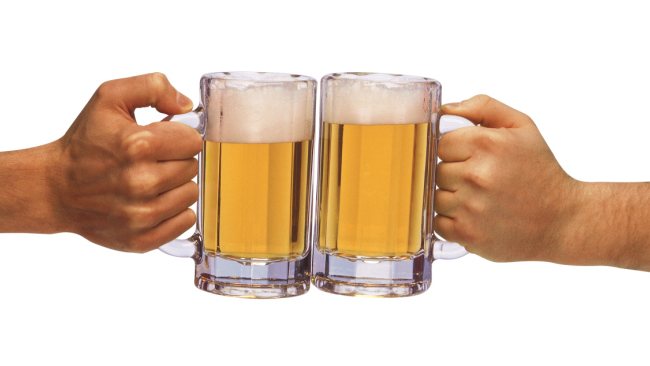
Any amount of alcohol is harmful, research shows. Source: Supplied
ALCOHOL abuse could be controlled by immune cells in our brains, University of Adelaide researchers say.
University of Adelaide researchers say there’s a growing body of evidence that alcohol triggers rapid changes in the immune system in the brain and this is behind responses like staggering and slurring.
They believe blocking part of the immune system might reduce alcohol abuse and help prevent drink driving accidents.
Lead researcher Mark Hutchinson says a study on mice, that were given a shot of alcohol, found that blocking a protein called toll-like receptor 4, part of the immune system, reduced the effects of alcohol in the animals.
He and his research team believe it may also work on humans.
“Medications targeting toll-like receptor 4 may prove beneficial in treating alcohol dependence and acute overdoses,” Dr Hutchinson says.
He says their work has implications for identifying individuals who may have bad outcomes after drinking alcohol.
It could also lead to a way of detecting people who are at greater risk of developing brain damage after long-term drinking, he says.
“It’s amazing to think that despite 10,000 years of using alcohol, and several decades of investigation into the way that alcohol affects the nerve cells in our brain, we are still trying to figure out exactly how it works,” he said.
His team’s research paper, published in the British Journal of Pharmacology, says alcohol, sedation and motor incoordination are likely responsible for traffic accident-related deaths in humans.
“Thus, our results not only suggests that the initial effects of alcohol are related to TLR4 signalling, but also may have important clinical applications in binge drinking-related brain conditions and alcohol dependence, which may culminate in preventing traffic accidents and decreasing social burden of alcohol abuse.”
